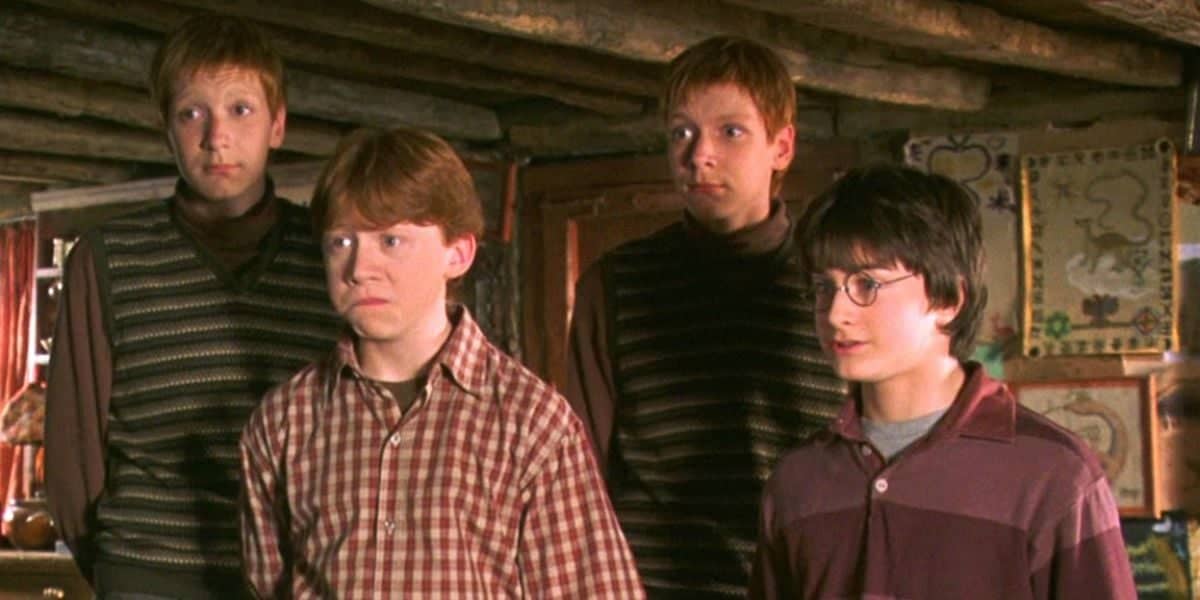There’s a troubling undercurrent in one Harry Potter storyline, and with the upcoming HBO reboot, it’s something the studio can’t afford to ignore.
Since Harry Potter and the Sorcerer’s Stone hit bookshelves in 1997, J.K. Rowling’s Wizarding World has grown into one of the biggest media franchises ever, spanning books, films, video games, theme parks, and even stage productions. It’s been a financial juggernaut for Warner Bros. Discovery – and now, with HBO developing a decade-long Harry Potter series, the story is getting a fresh start.

HBO’s ‘Harry Potter’ Reboot Brings a Second Chance
With the likes of Daniel Radcliffe (Harry Potter), Ralph Fiennes (Lord Voldemort), and Emma Watson (Hermione Granger) out of the picture and new actors such as John Lithgow (Albus Dumbledore) on board, HBO’s remake is bringing in totally fresh faces to retell Harry’s iconic magical tales.
That makes this a golden opportunity to refine and expand the Wizarding World in ways that weren’t possible in the original films. The reboot has promised a “faithful adaptation” of JK Rowling’s books, which inevitably means revisiting both beloved and controversial storylines featured in all eight novels.
While the franchise’s darker themes—like the perils of absolute power and the cost of war—have been explored in depth, there’s one very specific plot element that was conveniently glossed over in the films: the troubling implications of love potions.

The Problem with Love Potions
One of the most quietly unsettling moments in Harry Potter and the Half-Blood Prince (2009) comes when Romilda Vane (Anna Shaffer) attempts to slip Harry – who’s suddenly found himself the talk of Hogwarts since revealed as having told the truth about Lord Voldemort’s return – a love potion to manipulate his feelings.
Of course, this plan backfires when Ron Weasley (Rupert Grint) accidentally consumes the potion instead, resulting in an exaggerated, comedic sequence where he becomes obsessed with Romilda. But beneath the surface, this scene raises serious ethical concerns about consent and coercion.

If HBO truly intends to modernize Harry Potter for a new generation, it can’t afford to treat love potions as a joke. In the books, Voldemort’s mother, Merope Gaunt, uses a love potion to force Tom Riddle Sr. into a relationship – a backstory that fans have concluded directly contributes to Voldemort’s hatred and lack of empathy. The implications of this act are deeply disturbing, yet the series rarely acknowledges the gravity of such magic.
As fans recently pointed out in a Reddit thread, the love potion is basically akin to a date rape drug. However, the series totally plays it off as a gag – and, as one user points out, “Hermione heard about girls trying to date rape Harry and did nothing about it (other than warn him a little).” Ew.
In another user’s words, the series is “just like ‘oh haha a love potion’ when it’s really ‘oh shit a rape drug.'” With both the characters and the narrative making light of the seriousness of the potion, it’s yet another magical power in the series that has incredibly dark undertones – such as Imperio (which can make the victim do whatever the caster wants) and Oblivate (which can rewrite the victim’s memory).

With modern audiences more attuned to discussions about consent and agency, HBO has the opportunity to course-correct. Instead of playing love potions for laughs, the reboot could address their full impact, reinforcing that any form of magical coercion is a violation of personal freedom. How the series handles this issue will be a major test of whether the reboot is truly evolving with the times.
The Harry Potter reboot is still in early development, and while many details remain unknown, one thing is clear: HBO must tread carefully. Love potions aren’t just whimsical mischief—they represent a far darker reality. If the reboot is to be a meaningful retelling rather than a simple rehash, it needs to address these elements with the weight they deserve.

